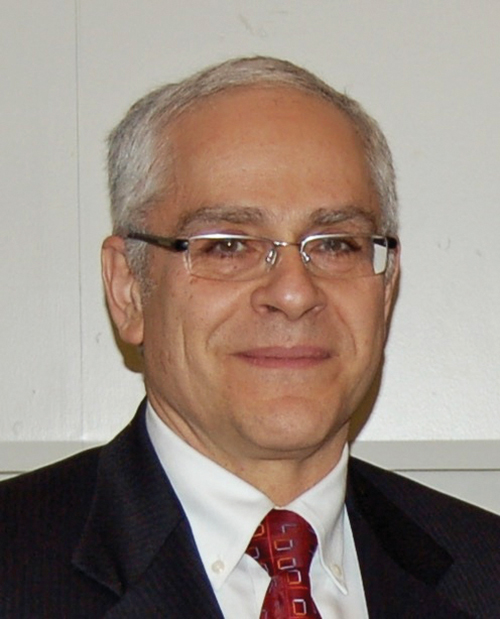
The 2024 presidential elections are only about a year away, and it won’t be long before the state primaries begin. And while it’s anybody’s guess as to who will emerge as our next president, there are some interesting findings that were just released by Nishma Research in its survey of the political views among those in the Orthodox Jewish community.
Among the major findings of the survey were that Modern Orthodox Jews have tended to vote Democratic in national elections, and Haredim have tended to vote overwhelmingly Republican in the past 40 years, and that trend is likely to continue in 2024. The survey found that 90% of Haredi Jews plan to vote for the Republican presidential candidate in 2024, while 61% of Modern Orthodox plan to vote for the Democratic presidential candidate.
I had a chance to speak to Mark Trencher, who conducted the survey, about some of the results of this timely study and what they might mean for the Orthodox community.
One of the more interesting findings was that in the Haredi community the younger demographic skewed more Republican, but in the Modern Orthodox community the older demographic skewed more Republican. Trencher explained why that might be: “The Haredi community is more homogeneous in its views, and the 90% Republican voting intention demonstrates that fact. This homogeneity extends across ages. As it is a more insular society, I’m not surprised that younger and older people are getting the same messages. In Modern Orthodoxy, I think we’re seeing a variation of the long-held belief that younger people are more liberal, and they become more conservative with age. I would say that young Modern Orthodox Jews are being given the opportunity to carve out their own, perhaps different, political views.”
Another interesting statistic that came out of the survey was that only 28% of the Haredi folks surveyed believe that being an American is an important part of who they are. This, even though America has allowed them to practice their religion freely and has even granted the community special exemptions based on their religion. I asked Trencher if this shows a lack of hakarat hatov within the Haredi community. He replied: “Maybe, but let’s not forget that they also feel a bit besieged by the larger society. Events like the series of many New York Times articles criticizing the Hasidic yeshivas have that effect. Bottom line … there is a belief that you’re either a Jewish American or an American Jew. I think when it comes to the Haredi community, their being Jewish is the No. 1 priority, so the 28% statistic reflects the fact that being an American is the No. 2 priority. Not unimportant … just less important.”
The Nishma survey showed that COVID changed the attitudes of a significant population of the Orthodox community, creating more distrust of the government. I asked Trencher whether he thought that as COVID becomes less part of our lives, we might witness a cyclical shift back to where it was before COVID. Trencher replied: “I think the suspicion and distrust of institutions will continue, regardless of COVID. Trump’s No. 1 strategy—and I suspect this emerged from focus groups with voters—was to present himself as an outsider. This appeals to disenchanted and perhaps somewhat alienated voters. So ’the government lies’ is an idea that resonates with some.”
The Nishma study clearly showed a significant shift among Orthodox individuals to become Republican voters. I asked Trencher what he attributes to this shift. Trencher said: “If you go back to 1980, the Modern Orthodox have averaged 45% Republican and 55% Democratic over 11 elections. There have been ups and downs, and the current 2024 voting intention of 61% Democratic is up a bit compared to the long-term average, although there has been a swing of about a half dozen points toward the Republican Party since 2016. The Haredi have been more uniformly Republican, although they, too, have swung in that direction in recent years. Support of Israel is a factor, as our survey respondents see the Republican Party as more supportive of Israel. On the other hand, the Modern Orthodox vote is clearly affected by negative views of Donald Trump.”
If Trump is the Republican nominee for president in 2024, will there be as many Orthodox folks who will vote Republican as last election? Trencher thinks so. “Interestingly, for both Haredi and Modern Orthodox voters, the Republican vote looks to be about 4% higher in 2024 than it was in 2020. I think COVID is a factor. 60% of Haredi and 31% of Modern Orthodox say that COVID shifted their attitudes about government toward a more distrustful and skeptical stance. These views correspond to a substantial shift in 2024 voting plans toward the Republican presidential candidate.”
Do most folks in the Haredi community vote for whom their rabbis tell them to vote for, or are most making independent voting choices? The Nishma study offers some answers, as Trencher explains. “Haredim obtain more information from religious leaders (17%, compared to 5% among Modern Orthodox). In terms of sources of guidance, one in six (16%) of the Haredim say they often have people tell them whom to vote for, most often community leaders (67%) or rabbis (44%). Within this group, most vote as they are told. So there is clearly somewhat more communal guidance and pressure of sorts among Haredi voters.”
It will be interesting to see how accurate these survey results are once the presidential election is held next November. Of course, much can change before that time … so we will just have to see what transpires in the next few months. Stay tuned…










